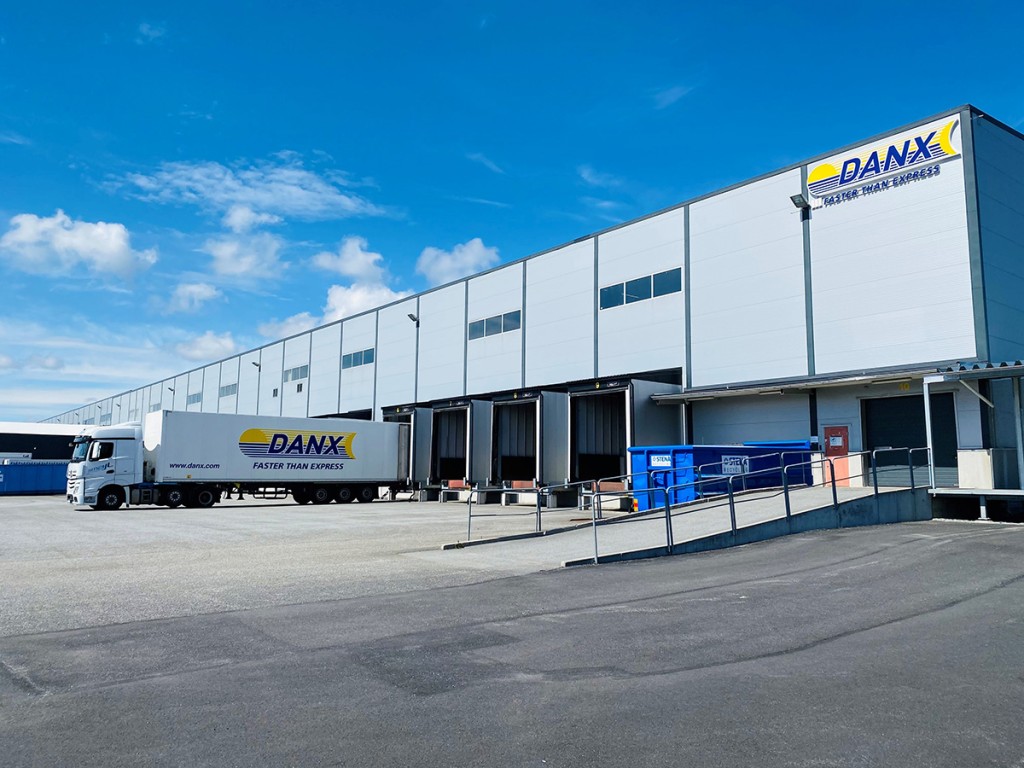DANX Carousel Group makes time-critical deliveries

The spare parts business, one of the most time sensitive sectors of the air cargo industry, is generally described as moving a massive piece of equipment overnight to keep a broken machine or an assembly line from causing costly production delays. Or worse.
But the merger of London headquartered Carousel and Copenhagen-based DANX has created a combined critical logistics specialist firm capable of delivering micro- to mega-sized products across a variety of industries in 35 European countries in as quick as same-day.
Joined together in March 2022 by Axcel, the Copenhagen located private equity house, DANX Carousel Group is not strictly confined to Europe’s borders. “Three times a year, we are coordinating massive, dedicated equipment shipments from Brazil into Sweden,” Lars Ryssel, chief solutions officer, told AJOT’s Air Freight News (AFN) in an exclusive interview. “But 90% of our markets are in Europe.”
Given its recently combined financial heft and shrinking globalization, does the company plan to enter new geographical markets in 2023-2024? “In terms of new countries, not necessarily,” replies Ryssel who operates from Berlin. “We are focusing on markets we’re already active in to improve our service offerings and product portfolio,” he adds
For example, if a company is requesting overnight delivery of service of, say, a material handling component moved from Hamburg to Amsterdam. Carousel’s “air solution” would be to pick up the shipment by 5:30 pm or close business and deliver it by as early as “pre-seven am” in time for a technician to install it for the following business day’s assembly operation, he says.

Merger Benefits
What has been a prime benefit from the merger between Carousel and DANX for their customers? “Pre-merger, DANX was focused on Denmark, Norway, Sweden, Finland or northern Europe. We focused on western European markets like the UK, Ireland, Germany, Netherlands, Spain, Portugal and a little bit of central and eastern Europe,” says Rysell. “The geographic coverage has increased for the DANX client and the Carousel client.”
But “critical time sensitivity” is equally important on the handling side and the merged company insists it competes with UPS, DHL, and other integrators by having shorter “cut-off times and, hence transit times,” he insists.
He claims the Carousel DANX “supply chain is a “little bit more bespoke or customized because we also have a preset delivery time for the majority of clients. That’s an area where the integrators do not want to play in. Their delivery options are usually pre 8:30 am or pre 9 am. We have a specific preset time.”
Rysell says delivery times can be as early as 7 am the following day to a technician. Reducing the “downtime” is critical. “Often we are serving clients who suffer a high (revenue) loss from a day’s failure to work. On a harvest it could be 50,000 euros a day.”
Carousel has to be exceptionally nimble because it is an “asset light” company. It charters aircraft rather than owns and deploys a fleet. “But we are chartering dedicated aircraft that work exclusively for us,” he explains, to eliminate the risk of waiting in a queue for plane previously booked by another company and having to scramble for a replacement or back up aircraft.
Currently the company is operating, with its partners, a total of six ATR 72 twin engine turboprops originally designed as a 78-passenger regional plane. Carousel contends the short-haul airliners are ideally suited and efficient for its 35-European country marketplace. The ATR-72 is powered by Pratt & Whitney Canada 100 engines.
Last Mile Deliveries
Carousel provides last mile deliveries with a combination of subcontracted trucks and its own fleet of vehicles, according to Rysell. The newly combined company has a total headcount of 900 staffers and focuses on essentially four large vertical manufacturing-centric industries—medical technology, agriculture, automotive and construction.
Rysell, who joined Carousel 18 months ago, is a career problem solver. He was previously a partner in Kearney, the global consulting company and has had a specialty in the e-commerce sector.
“There too, you have to make a super-special offering to your clients where it’s all about speed. If you can deliver the next day, you can increase the so-called conversion rate (order to sale instead of just lookers who click and order elsewhere),” he says. The e-commerce companies with fulfillment centers in Europe are choice targets for Carousel-DANX.
There are plenty of e-commerce markets in Europe that can be reached by truck in 24 hours, he acknowledges, but other countries including island nations, require air cargo services.
Again, Rysell emphasizes Carousel can beat the integrators at their game because it can bypass the sort centers to “provide a fast and speedy solution. These guys have to utilize their entire network so they would never be flying point to point. We fly directly to the hub of the last mile carrier and in some instances, we can save as many as four hours on a typical move.”
But the Carousel executive is fast to point out this is not always the case. If the shipper is using an integrator which has, sat Cologne as its European hub and the customer is near the German city, Carousel would have no real time advantage over the integrator, since there would likely be no difference in cutoff times.
Time-Critical Deliveries
Still, its time-critical expedited services are costlier than the typical integrator’s services and Rysell puts the premium “on average” at 20% higher. But it varies sharply depending on the nature of the specifics of the logistical assignment.
However, Carousel’s executive aims to convince direct shippers, forwarders and others to look beyond “just the pure transportation costs. It’s about the total end-to-end pick-up and delivery cost and time — bypassing sorting, warehousing—the shorter, quicker supply chain is the goal."
© Copyright 1999–2024 American Journal of Transportation. All Rights Reserved


